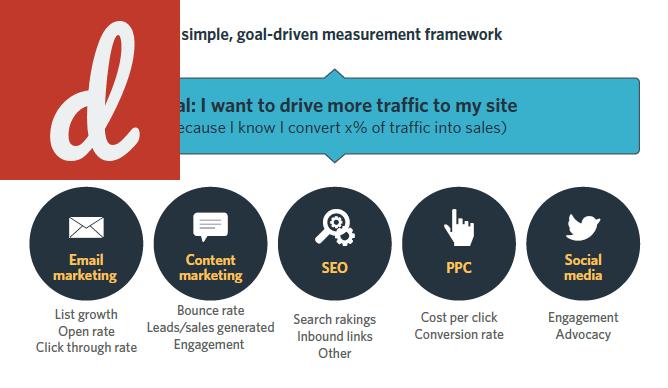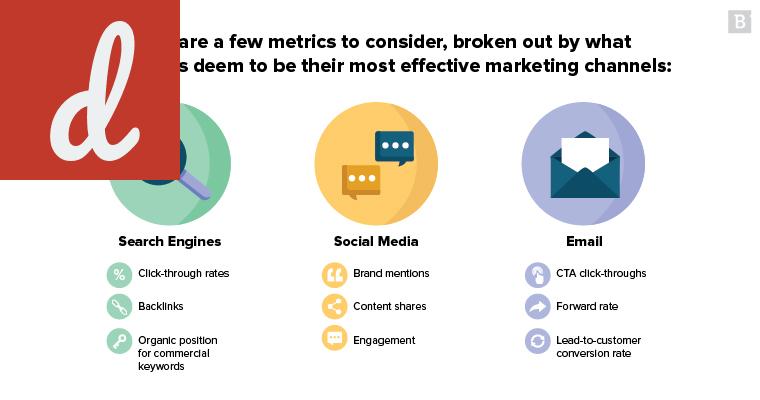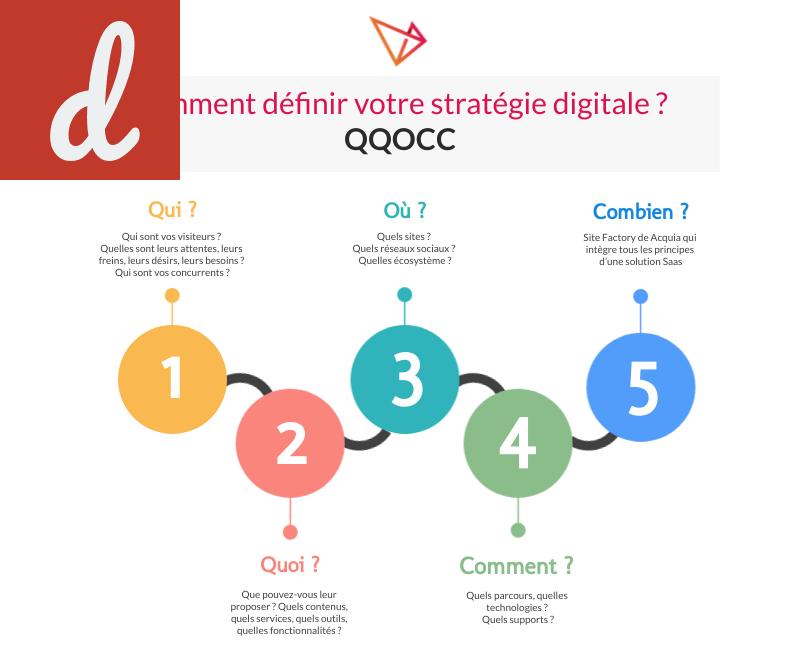Main Title: Key Metrics to Measure the Success of Your Digital Marketing Campaign
Are you wondering how to measure the success of your digital marketing campaign? Well, you're not alone. In today's competitive online landscape, measuring the effectiveness of your marketing efforts is crucial to ensure that you are getting the best return on your investment. By monitoring key metrics, you can understand how well your campaign is performing, identify areas of improvement, and make data-driven decisions to optimize your digital marketing strategy.
So, what are the key metrics that you should be measuring? Let's explore some essential indicators that can provide valuable insights into the success of your digital marketing campaign:
- List item 1: Conversion Rate: The conversion rate is a critical metric that measures the percentage of website visitors who complete a desired action, such as making a purchase, filling out a contact form, or subscribing to a newsletter. A high conversion rate indicates that your marketing efforts are effective in driving action from your target audience.
- List item 2: Click-Through Rate (CTR): The CTR measures the percentage of users who click on a specific link or call-to-action in your digital marketing campaign. A high CTR suggests that your campaign is compelling and engaging, and that your audience is actively interested in your content.
These metrics can provide valuable insights into the performance of your digital marketing campaign. However, it's important to note that measuring success goes beyond just looking at numbers. It's essential to align these metrics with your specific goals and objectives. For example, if your main goal is to generate leads, you should focus on tracking metrics like lead conversion rate, cost per lead, and lead quality.
Furthermore, it's crucial to use analytics tools to track these metrics accurately. Platforms like Google Analytics, Facebook Insights, and HubSpot provide comprehensive data and reporting features that can help you monitor and analyze your digital marketing campaign's performance.
In addition to these key metrics, it's also essential to pay attention to other indicators such as average session duration, bounce rate, and social media engagement. By analyzing these metrics, you can gain insights into the overall user experience, website performance, and the effectiveness of your social media marketing efforts.
To summarize, measuring the success of your digital marketing campaign is crucial for making informed decisions and optimizing your strategies. By monitoring key metrics like conversion rate and click-through rate, you can gauge the performance of your campaign and identify areas for improvement. Remember, these metrics should align with your specific goals and objectives, and analytics tools can help you accurately track and analyze your campaign's performance.
Quantifying the ROI of Your Digital Marketing Strategy
Digital marketing has become an essential tool for businesses looking to thrive in today's digital age. However, one common challenge faced by many businesses is quantifying the return on investment (ROI) of their digital marketing efforts. Without a clear understanding of the impact of these strategies, it becomes difficult to determine the effectiveness of your marketing campaigns and make informed decisions for future investments.
Measuring the ROI of your digital marketing strategy involves analyzing various key performance indicators (KPIs) that demonstrate the success or failure of your efforts. These KPIs provide valuable insights into how your digital marketing initiatives are influencing your business outcomes.
- Website Traffic: Monitoring the number of visitors to your website is an important KPI for measuring the success of your digital marketing campaigns. By tracking the source of the traffic, such as organic search, social media, or paid advertisements, you can assess which channels drive the most valuable visitors to your site.
- Conversion Rate: Your conversion rate is the percentage of visitors who complete a desired action, such as making a purchase or filling out a contact form. By tracking this KPI, you can measure the effectiveness of your website and landing pages in converting visitors into customers.
Another useful KPI for measuring the ROI of your digital marketing strategy is the customer acquisition cost (CAC). This metric provides insights into how much it costs your business to acquire a new customer through your marketing efforts. By comparing your CAC to the lifetime value (LTV) of a customer, you can determine whether your marketing campaigns are generating profitable results.
Furthermore, monitoring your social media engagement can provide valuable insights into the effectiveness of your digital marketing initiatives. By tracking metrics such as likes, shares, comments, and follower growth, you can assess the level of engagement and brand awareness generated through your social media efforts.
Keyword tracking is another important aspect of quantifying the ROI of your digital marketing strategy. By monitoring the rankings of your target keywords in search engines, you can assess the impact of your search engine optimization (SEO) efforts. Higher rankings for relevant keywords indicate increased visibility and potential website traffic.
In conclusion, quantifying the ROI of your digital marketing strategy is crucial for determining the success and effectiveness of your campaigns. By monitoring KPIs such as website traffic, conversion rate, customer acquisition cost, social media engagement, and keyword rankings, you can gain valuable insights and make data-driven decisions to optimize your marketing efforts. Remember, having a clear understanding of your ROI allows you to allocate your resources effectively and maximize the impact of your digital marketing strategy.
Analyzing the Effectiveness of Your Online Marketing Efforts
As businesses continue to harness the power of the internet for marketing purposes, it's essential to evaluate the effectiveness of your online marketing efforts. By analyzing key metrics and data, you can gain valuable insights into what is working and what needs improvement. In this article, we will explore some strategies to help you understand how well your online marketing campaigns are performing.
One of the first steps in analyzing your online marketing efforts is to track and measure your website traffic. Tools like Google Analytics provide valuable data on the number of visitors to your site, the sources of your traffic, and the pages that are attracting the most attention. By identifying trends and patterns in your website traffic, you can determine which marketing channels are driving the most visitors to your site.
Another important metric to analyze is the conversion rate. This refers to the percentage of visitors who complete a desired action on your website, such as making a purchase, filling out a form, or subscribing to your newsletter. By tracking your conversion rate, you can evaluate the effectiveness of your landing pages, calls-to-action, and overall user experience. Identify any bottlenecks or areas where visitors may be dropping off, and make necessary adjustments to improve your conversion rate.
- Email marketing: Email marketing can be a powerful tool for nurturing leads and driving conversions. Analyze metrics such as open rates, click-through rates, and unsubscribe rates to gauge the effectiveness of your email campaigns. Look for opportunities to improve subject lines, content, and segmentation to increase engagement.
- Social media marketing: Social media platforms provide insights into audience demographics, engagement rates, and reach. Analyze which social media channels are driving the most traffic to your website and generating the most leads. Optimize your social media strategy by focusing on platforms that resonate with your target audience.
Furthermore, analyzing your online advertising efforts is crucial in determining their effectiveness. If you are running paid search campaigns or display ads, track metrics such as click-through rates, cost per click, and conversion rates. Analyze the keywords and ad placements that are generating the best results and optimize your ad campaigns accordingly.
In addition to these quantitative metrics, don't forget to analyze qualitative feedback from your customers. Monitor reviews, comments, and social media conversations to understand how your brand is perceived online. Use this feedback to make improvements to your online marketing efforts and enhance the customer experience.
In conclusion, analyzing the effectiveness of your online marketing efforts is essential for maximizing your return on investment. By tracking metrics such as website traffic, conversion rates, email marketing performance, social media engagement, and online advertising results, you can make data-driven decisions to optimize your online marketing campaigns. Remember to continuously analyze and adapt your strategies to stay ahead in the ever-evolving digital landscape.

Tracking the Performance of Your Digital Marketing Initiatives
In today's digital age, it is crucial to measure and track the performance of your digital marketing initiatives. By doing so, you can gain valuable insights into the effectiveness of your strategies and make informed decisions to optimize your marketing efforts.
One of the key metrics to track is website traffic. By analyzing the number of visitors to your website, you can determine if your marketing campaigns are driving sufficient traffic. You can use tools like Google Analytics to get detailed data on the number of sessions, unique visitors, and page views.
Another important metric to monitor is conversion rate. This refers to the percentage of website visitors who take a desired action, such as making a purchase, signing up for a newsletter, or filling out a contact form. By tracking your conversion rate, you can gauge the effectiveness of your website in turning visitors into customers.
- List item 1: Use conversion tracking tools like Google Ads conversion tracking or Facebook Pixel to measure and optimize your conversion rate.
- List item 2: Monitor your website's bounce rate, which is the percentage of visitors who leave your website after viewing only one page. A high bounce rate could indicate that your landing page or website content needs improvement.
Keyword optimization is another important aspect of digital marketing to track. Ensure that your website and content are optimized for relevant keywords that your target audience is searching for. Track your rankings on search engine results pages (SERPs) for those keywords to see if your SEO efforts are paying off.
If you are running pay-per-click (PPC) advertising campaigns, tracking your return on ad spend (ROAS) is crucial. This metric calculates the revenue generated for every dollar spent on advertising. It helps evaluate the profitability and efficiency of your PPC campaigns.
Tracking the engagement metrics on your social media platforms is also essential. Keep an eye on metrics like likes, comments, shares, and followers to determine the level of interest and interaction with your content. Platforms like Facebook and Twitter provide built-in analytics tools to monitor these metrics.
Email marketing is a popular digital marketing strategy, and tracking the performance of your email campaigns is vital. Monitor metrics such as open rates, click-through rates, and conversion rates to evaluate the effectiveness of your email marketing efforts. Platforms like Mailchimp and Constant Contact offer detailed analytics to track these metrics.
Remember, consistently tracking and analyzing the performance of your digital marketing initiatives is crucial for success. Use the appropriate tools and metrics mentioned above to gain insights and make data-driven decisions to optimize your marketing strategy.
Measuring the Impact of Your Digital Marketing Activities
Are you curious about the impact of your digital marketing activities? Determining the effectiveness of your marketing efforts is crucial for the success of your business. By measuring the impact of your digital marketing activities, you can gain valuable insights into the performance of your campaigns, identify areas for improvement, and make data-driven decisions.
Here are some key metrics and tools that can help you measure and analyze the impact of your digital marketing activities:
- Website Traffic: One of the most basic metrics to measure is the number of visitors to your website. By tracking your website traffic, you can see how many people are visiting your site and which sources are driving the most traffic.
- Conversion Rate: The conversion rate measures the percentage of website visitors who take the desired action, such as making a purchase, filling out a form, or subscribing to your newsletter. By monitoring your conversion rate, you can determine the effectiveness of your website in converting visitors into customers or leads.
- Engagement Metrics: Engagement metrics, such as bounce rate, average time on page, and pages per session, can provide insights into how visitors are interacting with your website. A high bounce rate or a short average time on page may indicate that visitors are not finding what they are looking for, while a high number of pages per session may indicate strong engagement.
- Social Media Metrics: If you are active on social media, it's essential to measure the impact of your social media marketing efforts. Metrics such as the number of followers, likes, comments, and shares can help you gauge the reach and engagement of your social media posts.
- Email Marketing Metrics: For businesses that use email marketing campaigns, metrics such as open rate, click-through rate, and unsubscribe rate can provide valuable insights into the performance of your email campaigns. By analyzing these metrics, you can optimize your email marketing strategy to improve engagement and conversions.
- Google Analytics: Google Analytics is a powerful tool that can help you track and measure various aspects of your digital marketing activities. It provides detailed insights into website traffic, user behavior, conversion rates, and much more. By setting up goals and funnels in Google Analytics, you can track specific actions and measure the effectiveness of your marketing campaigns.
Remember, measuring the impact of your digital marketing activities is an ongoing process. It's essential to regularly monitor and analyze your metrics to identify trends, spot areas for improvement, and optimize your marketing strategies. By leveraging data and making data-driven decisions, you can drive better results and maximize the return on investment (ROI) of your marketing efforts.



Dec 22, 2023 Rachel Thompson says :
Great article on measuring the impact of digital marketing efforts. It is crucial for businesses to track the success of their strategies in order to make data-driven decisions and improve their overall marketing performance. By analyzing key metrics such as website traffic, conversion rates, and customer engagement, companies can gain valuable insights into the effectiveness of their digital campaigns. This data can help shape future marketing strategies and optimize budget allocation for better results. Keep up the good work! Les Avantages D'une Plateforme De Marketing Digital Tout-en-un